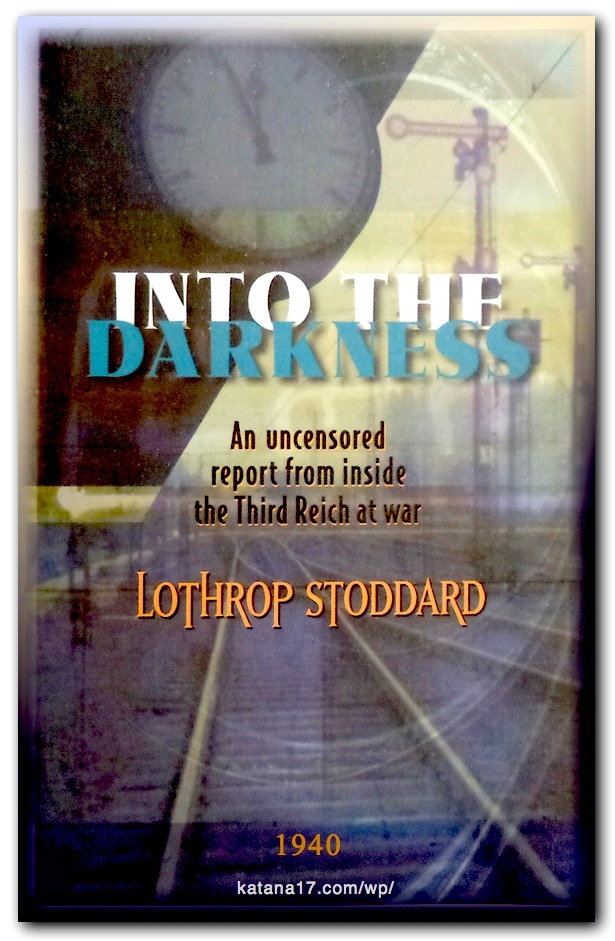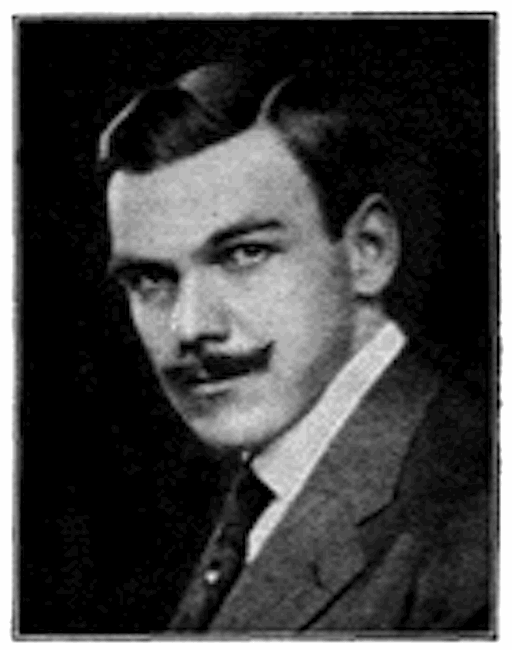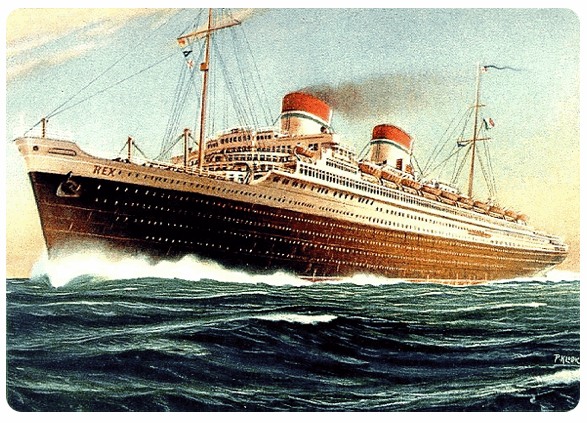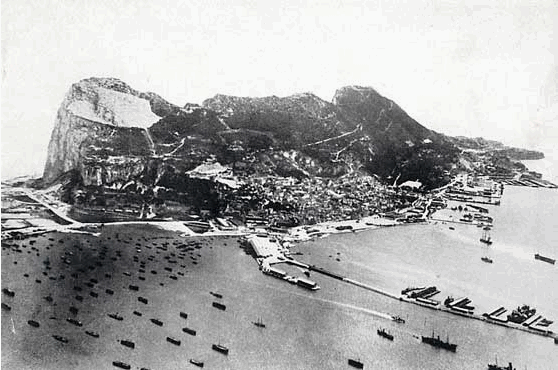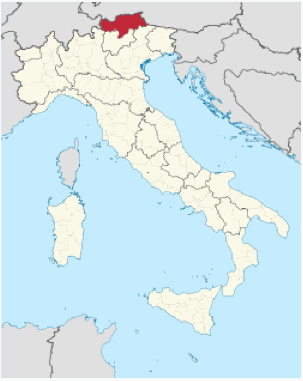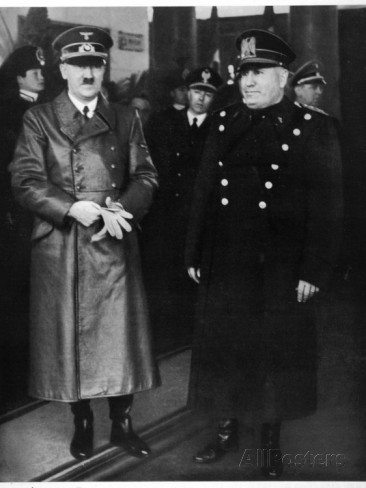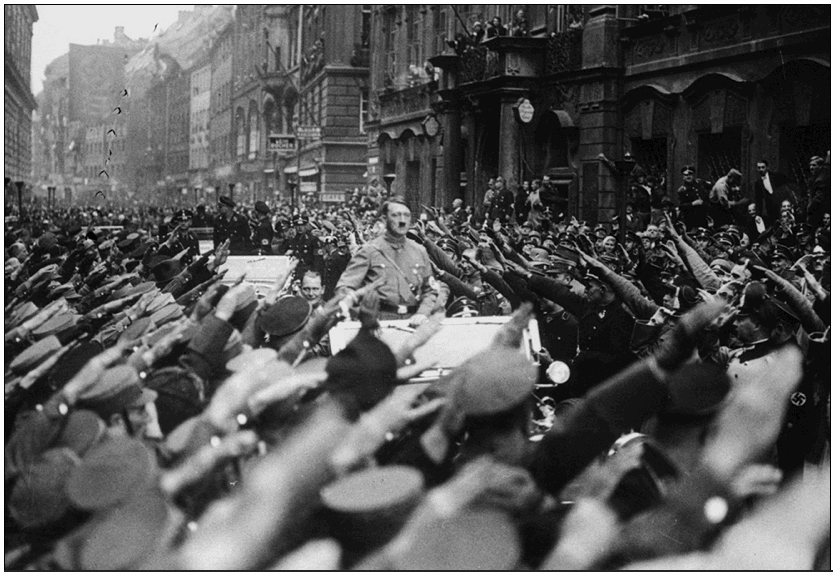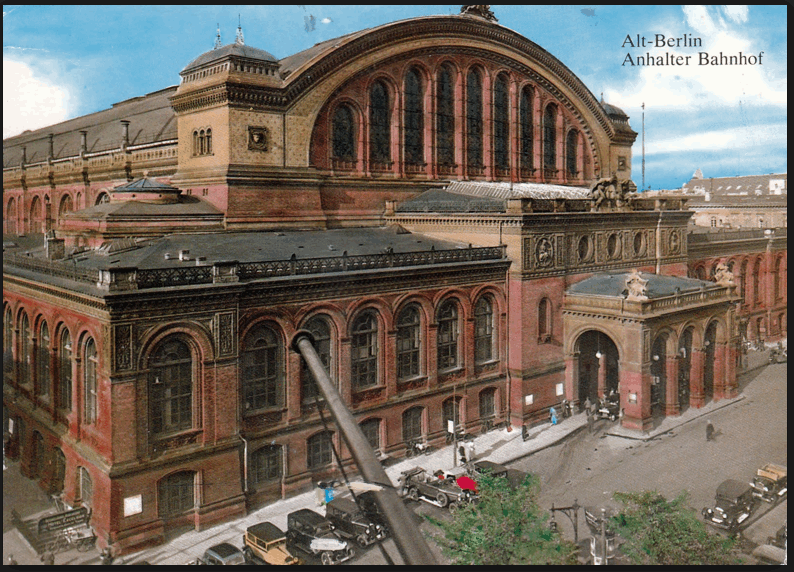Into the Darkness
An Uncensored Report from
Inside the Third Reich at War
by Lothrop Stoddard
Summary
Journalist Lothrop Stoddard’s evenhanded account of his travels through wartime Germany (and surrounding countries) from 1939-1940. His is a truthful report of the Third Reich; its leaders, political positions, and culture.
Stoddard was a renowned and well respected journalist when he made this trip and subsequent report, because it recounts accurately (and not politically correctly), the events of the time, his name, not to mention his report, has all but disappeared from today’s “official” history concerning that period.
Lothrop Stoddard
Table of Contents
Chapter 1: The Shadow . . . . . . . . . . . . . . . . . . . . . . . . . . . . 5
Chapter 2: Berlin Blackout . . . . . . . . . . . . . . . . . . . . . . . . . 17
Chapter 3: Getting on with the Job . . . . . . . . . . . . . . . . . . .26
Chapter 4: Junketing Through Germany . . . . . . . . . . . . . . 34
Chapter 5: This Detested War .. . . . . . . . . . . . . . . . . . . . . . 43
Chapter 6: Vienna and Bratislava . . . . . . . . . . . . . . . . . . . 52
Chapter 7: Iron Rations . . . . . . . . . . . . . . . . . . . . . . . . . . . . 63
Chapter 8: A Berlin Lady Goes to Market . . . . . . . . . . . . . 74
Chapter 9: The Battle of the Land . . . .. . . . . . . . . . . . . . . . 82
Chapter 10: The Labor Front . . . . . . . . . . . . . . . . . . . . . . . 98
Chapter 11: The Army of the Spade . . . . . . . . . . . . . . . . . 105
Chapter 12: Hitler Youth . . . . . . . . . . . . . . . . . . . . . . . . . . . 112
Chapter 13: Women of the Third Reich . . . . . . .. . . . . . . 120
Chapter 14: Behind the Winter Help . . . . . . . . . . . . . . . . . . 127
Chapter 15: Socialized Health . . . . . . . . . . . . . . . . . . . . . . 137
Chapter 16: In a Eugenics Court . .. . . . . . . . . . . . . . . . . . . 144
Chapter 17: I See Hitler . . . . . . . . . . . . . . . . . . . . . . . . . . . 155
Chapter 18: Mid-Winter Berlin . . . . . . . . . . . . . . . . . . . . . 164
Chapter 19: Berlin to Budapest . . . . . . . . . . . . . . . . . . . . . . 174
Chapter 20: The Party . . . . . . . . . . . . . . . . . . . . . . . . . . . . 190
Chapter 21: The Totalitarian State . . . . . . . . . . . . . . . . . . 204
Chapter 22: Closed Doors . . . . . . .. . . . . . . . . . . . . . . . . . . 215
Chapter 23: Out of the Shadow . . . . . . . . . . . . . . . . . . . . . 235
.
Chapter 1: The Shadow
All Europe is under the shadow of war. It is like an eclipse of the sun. In the warring nations the darkness is most intense, amounting to a continuous blackout. The neutral countries form a sort of twilight zone, where life is better, yet far from normal. In nature, an eclipse is a passing phenomenon; awe-inspiring but soon over. Not so with the war hidden sun of Europe’s civilization. Normal light and warmth do not return. Ominously, the twilight zone of neutrality becomes an ever bleaker gray, while war’s blackout grows more and more intense.
I entered wartime Europe by way of Italy, making the trip from America on the Italian liner Rex. It was a strange voyage. This huge floating palace, the pride of Italy’s merchant marine, carried only a handful of passengers. War’s automatic blight on pleasure tours, plus our State Department’s ban on ordinary passports, had dammed the travel flood to the merest trickle. So I sailed from New York on an almost empty boat.
Italian liner “Rex“
First Class on the Rex is a miracle of modern luxury. Yet all that splendor was lavished upon precisely twenty-five passengers including myself. Consequently we rattled around in this magnificence like tiny peas in a mammoth pod. A small group of tables in one corner of the spacious dining salon; a short row of reclining chairs on the long vista of the promenade deck; a pathetic little cluster of seats in the vast ballroom when it was time for the movies these were the sole evidences of community life. Even the ship’s company was little in evidence. Save for the few stewards and deckhands needed to look after us, the rest did not appear. Now and then I would roam about for a long time without seeing a soul. The effect was eery. It was like being on a ghost ship, “Outward Bound” and driven by unseen hands.
There was not much to be gleaned from my fellow passengers. Most of them were Italians, speaking little English and full of their own affairs. A pair of American business men were equally preoccupied. For them, the war was a confounded nuisance. The rapid-fire speech of a Chilean diplomat bound with his family for a European post was too much for my Spanish. The most intriguing person aboard was a lone Japanese who beat everybody at ping-pong but otherwise held himself aloof.
Back aft, Tourist Class was even more cosmopolitan, with a solitary American set among a sprinkling of several nationalities, including a young Iraki Arab returning to Bagdad from a course at the University of Chicago. He was a fiery nationalist deeply distrustful of all the European Powers, especially Soviet Russia with its possible designs on the Middle East. In both Tourist and Third Class were a number of Germans, mostly women but three of them men of military age. All were obviously nervous. They had taken the gamble that the Rex would not be stopped by the English at Gibraltar, Britain’s key to the Mediterranean. In that event, the men knew that a concentration camp would be the end of their venturesome attempt to return to the Fatherland.
Gibraltar
Passing the Straits of Gibraltar is always a memorable experience. This time it was especially impressive. We entered about mid afternoon. The sky was full of cloud masses shot with gleams of watery sunshine. At one moment a magnificent rainbow spanned the broad straits like a mammoth suspension bridge. On the African shore the jagged sierras of Morocco were draped in mists. By contrast, the mountains of Spain were dappled sunlight, their brown slopes tinted with tender green where the long drought of summer had been tempered by the first autumn rains.
At length the massive outline of the Rock of Gibraltar came into view. It got nearer. We forged steadily ahead on our normal course toward the open Mediterranean beyond. Would the British let us pass? Nobody knew but the ship’s officers, and they wouldn’t tell. Then, when almost abreast of the Rock, our bow swerved sharply and we swung in past Europa Point. The British were going to give us the once-over! Hastily I climbed to a ‘vantage place’ on the top deck to view what was to come, my Japanese fellow passenger following suit. As the Rex entered Algeciras Bay we could see Gibraltar’s outer harbor crowded with merchant shipping. When we got closer, I could discern by the big tricolor flags painted on their sides that most of them were Italian. Seven Italian freighters and three liners, all held for inspection. We cast anchor near the Augustus, a big beauty on the South American run.
As the anchor chain rattled, my fellow passenger turned to me with a bland Oriental smile. “Very interesting,” he remarked, pointing to the impounded shipping. “Do not think Japanese Government let this happen to our steamers.” We continued to view objectively happenings that did not personally concern us. Not so the bulk of the ship’s company. The sight of those many impounded ships stirred every Italian aboard. Officers assumed tightlipped impassivity and stewards shrugged deprecatingly, but sailors gathered in muttering knots while passengers became indignantly vocal, especially as a large naval tender approached us from shore. It was filled with British bluejackets and officers with white caps. I also spotted two military constables, which meant that they were after Germans.
As the tender swung alongside just beneath my vantage point, a young Italian fellow passenger strode up and joined us. Since he had already proclaimed himself an ardent Fascist, I was not surprised when he relieved his pent-up feelings with all the vigor of his seventeen years.
“Look at all our ships held in here!” he shouted.
“Isn’t it a shame?” I couldn’t resist a mischievous thought. “Just a little pat of the lion’s paw,” I put in soothingly.
The tease worked to perfection. He fairly exploded.
“Lions?” he yelled, shaking his fist.
“Insolent dogs, I call them. Just you wait. This war isn’t over; it’s only begun. Some fine day, our Duce will give the word. Then we’ll blast that old rock to smithereens and hand the fragments to our good friend Franco as a gesture of the friendship between our two Latin nations.”
This speech set off a sailor who was painting nearby. He joined us, gesticulating with his brush.
“I know how the English act,” he growled, “I went through the Ethiopian War. Wouldn’t I like to drop this paintbrush on that So and So’s head, down there!”
That So and So was a young British navy officer standing very erect in the tender’s stern. I shudder to think what might have happened if the sailor had obeyed that impulse.
By this time most of the British officers had climbed aboard, so I went below to see what was up. The spacious entrance salon was dotted with spectators. Through the open door of the purser’s office I could glimpse two Britishers going over the manifest of the ship’s cargo. Just outside the door, flanked by the constables, stood our three Germans of military age stocky men in their thirties or early forties. They stood impassive. This stoical pose was perhaps due to the fact that they had been drinking all the afternoon to quiet their nerves, so they should have been pleasantly mulled. Presently they entered the purser’s office. The interview was short. Out they came, and the constables escorted them downstairs to the lower gangway.
I hurried on deck to watch the tender again. It was now dark, but by our ship’s floodlights I could see some cheap suitcases aboard the tender. Soon a constable climbed down the short rope ladder; then the three Germans; then the second constable and the British investigation officers. The Germans, clad in raincoats, huddled around their scanty baggage and lit cigarettes. As the tender chugged away, the young officer previously menaced by the paintbrush shouted up to us in crisp British accents:
“You can go straight away now!”
The ordeal was over. It had lasted less than four hours. With only mail and a bit of express cargo, there was no valid reason for detaining us longer. We were lucky. Some ships with a full loading were held up for days. Anyhow, we promptly weighed anchor and were off. The twinkling lights of Gibraltar Town slipped quickly past and vanished behind Europa Point. The towering heights of the Rock loomed dimly in the sheen of the moon. Then it, too, sank from sight.
Approaching Italy, the weather turned symbolic. The last night on board we encountered a violent tempest marked by incessant lightning and crashing thunder. With the dawn a great wind came out of the north, blustering and unseasonably cold. The Bay of Genoa was smartly white-capped as the giant Rex slid into the harbor and nosed cautiously up to her dock.
Genoa, Italy
Historic Genoa, climbing its steep hills against a background of bare mountains, looked as impressive as ever. Yet there was a strange something in the picture which I could not at first make out. Then I realized what it was an almost Sabbath absence of motion and bustle, though the date was neither a Sunday nor a holiday. Broad parking spaces behind the docks were virtually empty of motor cars, while the streets beyond were devoid of traffic save for trams and horse drawn vehicles. Civilian Italy was denied gasoline. The precious fluid had been impounded for military purposes.
Friends met me at the dock, helped me through customs, and took me to the nearby railroad station in one of the few ancient taxis still permitted to run. At the station I checked my baggage as I was leaving town late that same evening. Apologetically, my friends escorted me to a tram in order to reach their suburban home some miles out. On the way I noted big letters painted on almost every dead-wall. Duce! Duce! Duce! Such were the triple salutes to Mussolini, endlessly repeated. Less often came the Fascist motto: Believe! Obey! Fight! Italy being partly mobilized, I saw many soldiers.
Yet, despite all those exhortations, neither soldiers nor civilians appeared to be in a martial mood. On the contrary, they seemed preoccupied, walking for the most part in silence, huddling down into their clothes against recurrent blasts of the chill mountain wind. Once beyond the heart of the city, traffic became even thinner. The few trucks encountered were run by compressed methane gas. I could tell this by the big extra cylinders clamped along their sides. They were like exaggerated copies of the Prestolite tanks I recall from my early motoring days.
At dinner that evening my friends and their guests talked freely.
“We’re just getting over a bad attack of jitters,” remarked my American born hostess.
“You should have been here a month and a half ago, when the war began, to realize how things were. At first we feared we were going right in, and expected French bombers over our heads any hour. You know that from our balcony we can glimpse the French coast on a clear day.” “The worst feature was the blackouts,” added my host.
“Thank goodness, we don’t have any more of them. Wait until you get up into Germany. Then you’ll know what I mean.”
“The Italian people doesn’t want to get into this row,” stated a professional man decisively.
“We’ve been through two wars already Ethiopia, Spain. That’s enough fighting for a while.” “If we should intervene later,” broke in a retired naval officer, “it will be strictly for Italian interests. And even then we’ll get what we want first. No going in on promises. We don’t forget how we got gypped at Versailles. That won’t happen a second time.”
“I must apologize for not serving you real coffee,” said my hostess. “But this Mokkari, made from roasted rice, isn’t so bad. You know we can’t get coffee from South America any more on a barter basis and we mustn’t lose any gold or foreign exchange in times like these except for imports vitally needed.”
“As a matter of fact,” put in a guest, “we could have a small coffee ration from what we get in from Ethiopia. But that coffee is very high grade and brings a fancy price on the world market. So the Government sells it all abroad to get more foreign exchange.”
“We’ve been systematically learning to do without luxury imports ever since the League sanctions against us during the Ethiopian War,” said my host.
“You’d be surprised to learn how self-sufficient we have become.” “Autarchy,” stated the retired naval officer sententiously, “is a good idea. Puts a nation on its toes. Makes more work. Stimulates invention. Of course we can’t do it a hundred per cent. But the nearer we can come to it, the better.”
During the railroad journey from Genoa to the German border, my social contacts were scanty. Fellow travelers were Italians, and my knowledge of that tongue is far too sketchy for intelligent conversation. Still, I found an army officer who spoke French and a business man who knew German.
The army officer was an optimist, due largely to his faith in Mussolini.
“Our Duce is a smart man,” he said emphatically. “He’s keeping us out of that war up north because he knows it isn’t our fight. Not yet, at any rate. Should conditions change, I’m sure he’s smart enough to pick the right side for us.”
Ideologies evidently didn’t bother him. In his eyes it was just another war.
The business man was equally unconcerned with ideals but did not share the officer’s optimism.
“This is a crazy war,” he growled. “I can’t see how the leaders on either side let it happen. They ought to have had sense enough to make some compromise, knowing as they should what it will probably mean. If it goes on even two years, business everywhere will be hopelessly undermined and may be nationalized. If it lasts as long as the other war, all Europe will be in chaos. Not organized Communism. Just plain anarchy.”
“Won’t Italy gain commercially by staying neutral?” I inquired.
“Oh, yes,” he shrugged. “We’re doing new business already and we’ll get more. But we’ll lose all our war profits and then some in the postwar deflation.”
He sighed heavily and looked out of the window at the autumn landscape flitting by.
A number of Germans boarded the train at Verona. I later found out that they were vacationists returning from a short trip to Venice. Typical Hansi tourists they were the men with round, close cropped heads; the women painfully plain, as the North German female of the species is apt to be.
I presently engaged one of the men in conversation. He complimented me on my German and was interested to learn that I was bound his way.
“You’ll find things surprisingly normal in Germany, considering it’s wartime,” he told me. “Though of course, coming straight from your peaceful, prosperous America, you won’t like some aspects of our life. Blackouts and food cards, for instance. Even so, I’m glad to be going home. Italy’s a lovely country, but it isn’t Gemuetlich. The Italians don’t like us and make us feel it. At least, the people here in Northern Italy do. Further south, I’m told they are not so anti-German.”
By this time our train had entered the region formerly called South Tyrol, annexed to Italy at the close of the World War.
Despite two decades of Italianization, the basic Germanism of the region was still visible, from the chalet like peasant farmsteads to the crenelated ruins of old castles perched high on crags, where Teutonic knights once held sway. I had known South Tyrol before 1914 when it was part of Austria, so I was interested to see what changes had taken place. Even from my car window I could see abundant evidences of Italian colonization. All the new buildings were in Italian style, and Latin faces were numerous among the crowds of Third-Class passengers who got on and off at every stop. The stations swarmed with soldiers, police, and Carabinieri in their picturesque black cutaway coats and big cocked hats. The German tourists viewed all this in heavy silence. It was clear they did not wish to discuss the painful subject.
South Tyrol, Italy
As the train wound its way up the mountain girt valley of the Adige, the weather grew colder. Long before we reached Bolzano, the ground was sprinkled with snow most unusual south of the Brenner in late October. It was the first chill breath of the hardest winter in a generation, which war torn Europe was destined to undergo. The mountains on either hand were well blanketed with white.
Bolzano
Bolzano (formerly Botzen) is a big town, the provincial capital and the administrative center. Here, Italianization had evidently made great strides. Large new factories had been built, manned by Italian labor. The colonists were housed in great blocks of modern tenements, forming an entire new quarter. On the walls were inscribed in giant letters: “Thanks, Duce!” There must be a big garrison, for the old Austrian barracks had been notably enlarged. They bore Mussolini’s famous statement: “Frontiers are not discussed; they are defended!” When we had reached Bolzano, the autumn dusk was falling. As we waited at the station, a gigantic sign on a nearby hill blazed suddenly forth, in electric light, the Latin word Dux. When the train started its long upward pull to the Brenner Pass, the snowfields on the high mountains to the north were rosy with the Alpine glow.
The crest of the historic Brenner Pass is the frontier between Italy and Germany. It is likewise the dividing line between peace and war. To the south lies Italy, armed and watchful but neutral and hence relatively normal. To the north lies Germany, a land absorbed in a life and death struggle with powerful foes. The traveler entering Germany plunges into war’s grim shadow the instant he passes that mountain gateway.
I crossed the Brenner at night, so I encountered that most startling aspect of wartime Germany the universal blackout. All the way up the Italian side of the range, towns and villages blazed with electric light furnished by abundant waterpower. Also my train compartment was brilliantly illuminated. There was thus no preparation for what was soon to happen.
Shortly before reaching the frontier two members of the German border police came through the train collecting passports. Being still in Italy, they were in civilian clothes, their rank indicated solely by swastika arm bands. They were not an impressive pair. One was small and thin, with a foxy face. The other, big and burly, had a pasty complexion and eyes set too close together.
BENITO MUSSOLINI Italian dictator meeting Hitler at Brennero station in 1940
At Brennero, the Italian frontier station where Hitler and Mussolini were later to meet, the German train crew came aboard. The new conductor’s first act was to come into my compartment and pull down the window shades. Then in came the official charged with examining your luggage and taking down your money declaration. In contrast to the border police, he was a fine figure of a man ruddy face, blue eyes, turned up blond mustache, and a well fitting gray uniform. After a brief and courteous inspection he stated crisply: “Only blue light allowed.” Thereupon the brilliant electric globes in my compartment were switched off, and there was left merely a tiny crescent of blue light, far smaller than the emergency bulbs in our subway trains. So scant was the illumination that it did little more than emphasize the darkness. Had it not been for a dimmed yellow bulb in the train corridor, it would have been almost impossible to make my way around.
With nothing to do but sit, I presently tired of my compartment and prowled down the corridor to find out whether anything was to be seen. To my great satisfaction I discovered that the windows to the car doors had no curtains, so I could look out. And what a sight I beheld! It was full moon, and the moonlight, reflected from new fallen snow, made the landscape almost as bright as day. Towering mountain peaks on either hand shot far up into the night. The tall pine and fir trees were bent beneath white loads. Now and then, tiny hamlets of Tyrolean chalets completed the impression of an endless Christmas card.
As the train thundered down from the Alpine divide it entered a widening valley with a swift flowing little river. Houses became more frequent, hamlets grew larger. Now and then we passed a sawmill, apparently at work, since smoke and steam rose from the chimneys. Yet nowhere a single light. Only very rarely a faint gleam where some window was not entirely obscured. The landscape was as silent and deserted as though the whole countryside had been depopulated.
At Innsbruck, the first city north of the border, are freight yards, and here I could appreciate more fully the thoroughness of German anti-air raid precautions. The engines had no headlights only two small lanterns giving no more illumination than the oil lamps in front of our subway trains. In the freight yards, switch lights were painted black except for small cross-slits. Here and there, hooded lights on tall poles cast a dim blue radiance. Only on the station platform were there a few dimmed bulbs just enough for passengers to see their way.
From Innsbruck on I was allowed to raise my window shade, so I could sit comfortably in my compartment and view this blacked out country at my ease. So extraordinary was the moonlit panorama that I determined to forego sleep and watch through most of the night. The sacrifice was well repaid.
Hitler in Munich
As we got into the Munich metropolitan area I could judge still better the way urban blackouts are maintained. Munich is a great city, yet it was almost as dark as the countryside. The main streets and highway intersections had cross-slitted traffic lights, but since these are red and green they doubtless do not show much more from the air than does blue. Furthermore, at this late hour, there was almost no traffic beyond an occasional truck. No ray of white light anywhere, and except along the railway no hooded blues. Passing through this great darkened city, the sense of unnatural silence and emptiness became positively oppressive.
The streets of Munich presently gave way to open country once more. The mountains lay far behind, and the plateau of Upper Bavaria, powdered with snow, stretched away on either hand until lost in frosty moon mist. The monotonous landscape made me doze. Some sixth sense must have awakened me to another interesting sight. My train was passing through the Thuringian Hills. They were clothed with magnificent pine forests, as deep laden with new fallen snow as those of the Tyrolean Alps. Those Thuringian forests grow in rows as regular as cornfields. The hills are belted with plantings of various heights, giving a curious patchwork effect. Where a ripe planting has been cut over, not a trace of slash remains and seedlings have been set out. Here is forestry carried to the nth degree of efficiency.
Out of the hills and into level country, I dozed off again, not to awaken until sunrise a pale, weak looking late autumn sun, for North Germany lies on the latitude of Labrador. The sun was soon hidden by clouds, while at times the train tore through banks of fog. We were well into the flat plains of Northern Germany, and a more uninteresting landscape can hardly be imagined. Houses and factories are alike built chiefly of dull yellow brick, further dulled by soft coal smoke. The intervening stretches of countryside are equally unattractive. The soil, though carefully tended, looks thin, much of it supporting only scrub pine.
At some of the larger stations were sizable groups of soldiers, perhaps mobilized reservists waiting for troop trains. They were in field kit, from steel helmets to heavy marching boots coming halfway to the knee. Incidentally, the present German uniform is not the “field gray” of the last war. It is a dull gray green, unimpressive in appearance yet blending well with the landscape, which wartime uniforms should do.
Towns became more frequent, until we were obviously on the outskirts of a metropolitan area. I was nearing Berlin. Now and then the train passed extensive freight yards. Here it was interesting to note the quantity of captured Polish rolling stock. Like the German freight cars, they were painted dull red, but were distinguished by a stenciled Polish eagle in white with the letters PKP. In most cases there had been added the significant word DEUTSCH, meaning that the cars are now German. At length the train slackened speed and pulled into the vast, barn like Anhalter Bahnhof, the central station for trains from the south. I had arrived in Berlin, Germany’s capital and metropolis.
Anhalter Bahnhof
———————————-
Book Reviews
Chapter 1: The Shadow
Chapter 2: Berlin Blackout
Chapter 3: Getting on with the Job
Chapter 4: Junketing Through Germany
Chapter 5: This Detested War
Chapter 6: Vienna and Bratislava
Chapter 7: Iron Rations
Chapter 8: A Berlin Lady Goes to Market
Chapter 9: The Battle of the Land
Chapter 10: The Labor Front
Chapter 11: The Army of the Spade
Chapter 12: Hitler Youth
Chapter 13: Women of the Third Reich
Chapter 14: Behind the Winter Help
Chapter 15: Socialized Health
Chapter 16: In a Eugenics Court
Chapter 17: I See Hitler
Chapter 18: Mid-Winter Berlin
Chapter 19: Berlin to Budapest
Chapter 20: The Party
Chapter 21: The Totalitarian State
Chapter 22: Closed Doors
Chapter 23: Out of the Shadow
===========================
PDF of this post. Click to view or download (0.8MB). >> Into The Darkness – Chapt 1 – The Shadow
Knowledge is Power in Our Struggle for Racial Survival
(Information that should be shared with as many of our people as possible — do your part to counter Jewish control of the mainstream media — pass it on and spread the word) … Val Koinen
———————————-
Version History
Version 8: Nov 23, 2020. Re-uploaded images and PDF for katana17.com/wp/ version. Improved formatting.
Version 7: Jun 17, 2015. Formatting changes.
Version 6: Nov 28, 2014. Added PDF file (Ver 2) of this post
Version 5: Aug 31, 2014. Formatted pics. Updated chapter links.
Version 4: Thu, Jun 5, 2014. Added PDF file of this chapter for download
Version 3: Wed, Feb 26, 2014. Re-entered this chapter as it had been accidently deleted.
Version 2: Wed, Feb 5, 2014. Added Chapter links.
Version 1: Published April 30, 2013.

